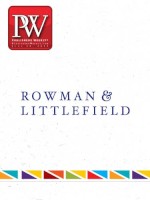White’s The Science Delusion: Asking the Big Questions in a Culture of Easy Answers confronts popular neuroscience and its reductionist assertion that there is nothing more to the human mind than a computer-based functionality.
What is “The Science Delusion” and why did you choose this title?
Oh, the title is an attempt to pick a fight with Richard Dawkins, author of The God Delusion, and the New Atheist crowd. One common characteristic of this group is jaw-dropping arrogance. This arrogance makes them blind to the fact that conservative evangelicals are not all there is to religion and to the impossibility that everything can be explained mechanically, or through the “spinning of atoms,” as they like to say.
Why do you think Dawkins and Hitchens are so popular despite their unlikeable personalities? Is it possible that some of their ideology is/was about seeking attention or courting controversy?
It is hard to imagine enjoying a dinner with these guys, isn’t it? “My Dinner with Dawkins” is likely to consist of browbeating and indigestion. No doubt part of their attraction is the fact that politicians are prone to pussyfoot with Christian conservatives while Dawkins, Hitchens, Daniel Dennett, Alex Rosenberg, and the rest pull no punches. Unfortunately, they know about as much about the history of religion and the intricacy of theologies as the evangelicals do about string theory.
Hitchens was controversial for courting controversy. His awful God is Not Great seems written for the purpose of raising a stink from which he can profit. Dawkins I give the benefit of the doubt. But I don’t think it has escaped their collective attention that most of these books are wildly profitable.
Why are science and art so at odds, given that they are, as scientist Jacob Bronowski stated, both the product of imagination?
For Anglo-American culture, that is the question of all questions. Most histories of ideas say that it is not coincidental that industrialism first flourished in England, home of Newton and the Royal Society, and it is not an accident that the role of science grew enormously once industrialism was firmly in place. Ever since, science and industry have taken turns slinging each other into the future. The English Romantics responded and created the first counterculture of poets and bohemians operating under the banner of the Imagination. That antagonism has endured with precious few exceptions, like Bronowski, through the ’60s to the present.
How has unchecked free market Capitalism contributed to or benefited from popular science? I am thinking here of your comments on Silicon Valley corporations and their “fake bohemian geek culture”.
One of the most amazing popular misperceptions of the present is the idea that the geeks and their corporations are descendants of the hippies and are politically progressive. In fact, many of the original digital entrepreneurs, like Larry Ellison at Oracle, are Randians. The most recent example is Mark Zuckerberg’s FWD.us, which has come out in support of Sen. Lindsay Graham, and in favor of the Keystone Pipeline and drilling in the Arctic National Wildlife Preserve. Meanwhile, everyone at the office is getting a tattoo, riding skateboards at lunch, tearing down the carrels, and working under the assumption that human beings and computers are one: they’re both profitable machines.
What can scientists (and the rest of us) learn from the Idealist philosophy you recommend in the book?
Technically, I discuss post-Kantian German idealism. Unfortunately, put in that way everyone runs for the door. What I try to show is how relevant and productive the ideas of a philosopher like Friedrich Schiller should still be for us. The essence of Romanticism was the feeling of alienation, the feeling that you don’t belong in the world. You don’t belong in it and you don’t like it. For Schiller as well as for every refusenik since, right up to Jerry Garcia and Radiohead, the best response to the world as it stands is to use art in order to create countercultures. Romanticism is the logic of counterculture.
How does the process of writing a book of criticism like The Science Delusion differ from writing fiction?
As a writer, I don’t make a great distinction between the two. Both kinds of writing are deeply pleasurable for me. In both, I think of myself as someone telling a story, thinking, and trying to persuade. At heart, I’m a satirist, although it is a satire with heart. But my approach in both is highly stylized if not idiosyncratic. Even the non-fiction is voice-driven to a degree and both try to make shrewd use of humor. The important thing is always that the work itself be an example of what I am encouraging my reader to desire. In other words, my books are countercultures.



 Volume 260
Issue 23
06/10/2013
Volume 260
Issue 23
06/10/2013





